Video: Could a polio vaccine stop the coronavirus pandemic?
The COVID-19 pandemic has scientists considering a few less-conventional options while vaccines against SARS-CoV-2 are being developed. One option might be the oral polio vaccine. We chatted with one of the researchers proposing the idea — Robert Gallo, M.D. — to understand why a vaccine that hasn’t been used in the U.S. for two decades might provide short-term protection against this new coronavirus:- Tuesday, May 12, 2020

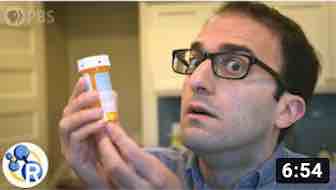 WASHINGTON — Antiviral drugs could help us fight the new coronavirus, but currently, we don’t have a highly potent, effective antiviral that cures COVID-19. Why not? We called a few virologists to find out:
WASHINGTON — Antiviral drugs could help us fight the new coronavirus, but currently, we don’t have a highly potent, effective antiviral that cures COVID-19. Why not? We called a few virologists to find out:
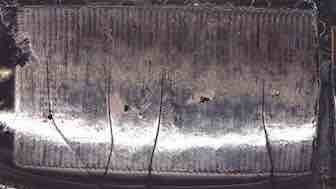 WASHINGTON — As demand for higher-efficiency and smaller electronics grows, so does demand for a new generation of materials that can be printed at ever smaller dimensions. Such materials are critical to national security applications and space exploration. But materials that work well on Earth don’t always hold up well at high altitudes and in space. Scientists are now creating new metal-based nanomaterials for circuit boards that could be resistant to the high-altitude radiation encountered by electronics in aerospace equipment, fighter jets and weapon systems.
WASHINGTON — As demand for higher-efficiency and smaller electronics grows, so does demand for a new generation of materials that can be printed at ever smaller dimensions. Such materials are critical to national security applications and space exploration. But materials that work well on Earth don’t always hold up well at high altitudes and in space. Scientists are now creating new metal-based nanomaterials for circuit boards that could be resistant to the high-altitude radiation encountered by electronics in aerospace equipment, fighter jets and weapon systems.
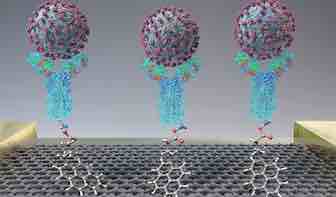 According to many experts, early diagnosis and management are critical for slowing the spread of SARS-CoV-2, the new coronavirus that causes COVID-19. Therefore, the race is on to develop diagnostic tests for the virus that are faster, easier and more accurate than existing ones. Now, researchers reporting in ACS Nano have developed a field-effect transistor-based biosensor that detects SARS-CoV-2 in nasopharyngeal swabs from patients with COVID-19, in less than one minute.
According to many experts, early diagnosis and management are critical for slowing the spread of SARS-CoV-2, the new coronavirus that causes COVID-19. Therefore, the race is on to develop diagnostic tests for the virus that are faster, easier and more accurate than existing ones. Now, researchers reporting in ACS Nano have developed a field-effect transistor-based biosensor that detects SARS-CoV-2 in nasopharyngeal swabs from patients with COVID-19, in less than one minute.
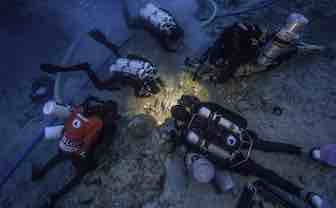 When a dead body is found, one of the first things a forensic pathologist tries to do is estimate the time of death. There are several ways to do this, including measuring body temperature or observing insect activity, but these methods don’t always work for corpses found in water. Now, researchers are reporting a mouse study in ACS’ Journal of Proteome Research showing that certain proteins in bones could be used for this determination.
When a dead body is found, one of the first things a forensic pathologist tries to do is estimate the time of death. There are several ways to do this, including measuring body temperature or observing insect activity, but these methods don’t always work for corpses found in water. Now, researchers are reporting a mouse study in ACS’ Journal of Proteome Research showing that certain proteins in bones could be used for this determination.
 Over 80% of chemicals used to make pharmaceuticals sold in Europe originate from China or India, according to the European Fine Chemicals Group. When COVID-19 emerged in Wuhan and spread across the globe, experts worried about disruption of the drug supply chain. Now, nations are rethinking their dependence on other countries for pharmaceutical ingredients and finished drugs, according to an article in Chemical & Engineering News (C&EN), the weekly newsmagazine of the American Chemical Society.
Over 80% of chemicals used to make pharmaceuticals sold in Europe originate from China or India, according to the European Fine Chemicals Group. When COVID-19 emerged in Wuhan and spread across the globe, experts worried about disruption of the drug supply chain. Now, nations are rethinking their dependence on other countries for pharmaceutical ingredients and finished drugs, according to an article in Chemical & Engineering News (C&EN), the weekly newsmagazine of the American Chemical Society.
 Gluten is enemy No. 1 for those with celiac disease, and it’s hard to avoid. Episodes of this chronic autoimmune illness can be triggered by ingesting gluten, a key protein in wheat and some other grains. Researchers have been exploring how gut bacteria, especially Bifidobacteria, could be used as a treatment. Now, scientists publishing the results of laboratory experiments in ACS’ Journal of Agricultural and Food Chemistry report how specific types of Bifidobacteria work.
Gluten is enemy No. 1 for those with celiac disease, and it’s hard to avoid. Episodes of this chronic autoimmune illness can be triggered by ingesting gluten, a key protein in wheat and some other grains. Researchers have been exploring how gut bacteria, especially Bifidobacteria, could be used as a treatment. Now, scientists publishing the results of laboratory experiments in ACS’ Journal of Agricultural and Food Chemistry report how specific types of Bifidobacteria work.
 Patients with Alzheimer’s disease (AD) are often prescribed drugs for other conditions — including diabetes or high blood pressure — at the same doses as those without dementia. That practice might need to be reexamined in the wake of new mouse studies reported in ACS’ Molecular Pharmaceutics. The findings suggest that AD could alter absorption of medications from the digestive tract, so dosages might need to be adjusted for these patients.
Patients with Alzheimer’s disease (AD) are often prescribed drugs for other conditions — including diabetes or high blood pressure — at the same doses as those without dementia. That practice might need to be reexamined in the wake of new mouse studies reported in ACS’ Molecular Pharmaceutics. The findings suggest that AD could alter absorption of medications from the digestive tract, so dosages might need to be adjusted for these patients.
 Someday, microbial cyborgs –– bacteria combined with electronic devices –– could be useful in fuel cells, biosensors and bioreactors. But first, scientists need to develop materials that not only nurture the microbes, but also efficiently and controllably harvest the electricity or other resources they make. Now, researchers reporting in ACS Applied Materials & Interfaces have developed one such material that enabled them to create a programmable “biohybrid” system that conducts electrons from electricity-producing (exoelectrogenic) bacteria.
Someday, microbial cyborgs –– bacteria combined with electronic devices –– could be useful in fuel cells, biosensors and bioreactors. But first, scientists need to develop materials that not only nurture the microbes, but also efficiently and controllably harvest the electricity or other resources they make. Now, researchers reporting in ACS Applied Materials & Interfaces have developed one such material that enabled them to create a programmable “biohybrid” system that conducts electrons from electricity-producing (exoelectrogenic) bacteria.
 WASHINGTON — Refreshable braille displays translate information from computer screens into raised characters, often along the bottom of a keyboard. But this technology can cost thousands of dollars and is limited, typically displaying a string of characters much shorter than most sentences. Researchers now report an improved material that could take these displays to the next level, allowing those who are blind or who have low vision to more easily understand text and images, while lowering cost.
WASHINGTON — Refreshable braille displays translate information from computer screens into raised characters, often along the bottom of a keyboard. But this technology can cost thousands of dollars and is limited, typically displaying a string of characters much shorter than most sentences. Researchers now report an improved material that could take these displays to the next level, allowing those who are blind or who have low vision to more easily understand text and images, while lowering cost.
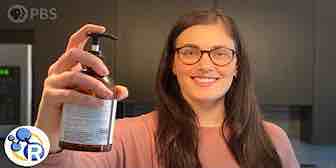 WASHINGTON, Constantly being told to wash your hands? Us, too. So we’re diving into the chemistry behind why soap is so effective against viruses like the coronavirus that causes COVID-19:
WASHINGTON, Constantly being told to wash your hands? Us, too. So we’re diving into the chemistry behind why soap is so effective against viruses like the coronavirus that causes COVID-19: